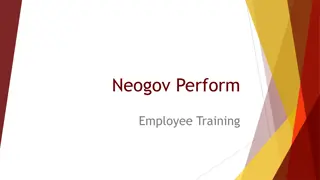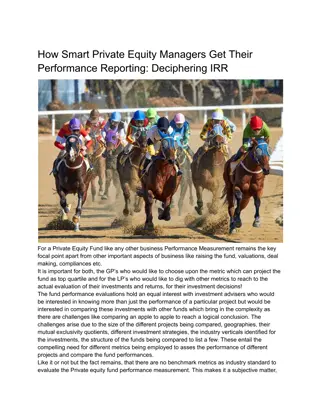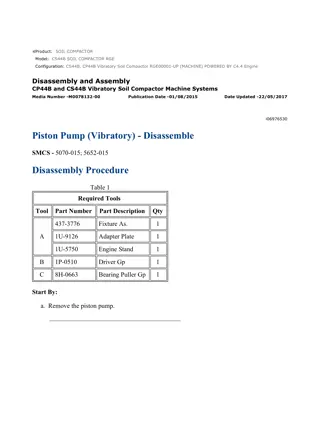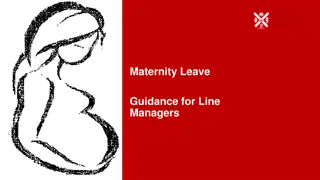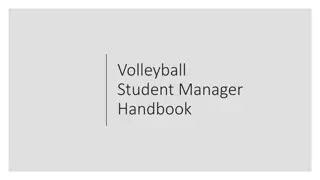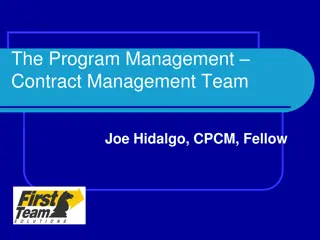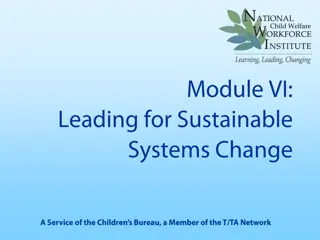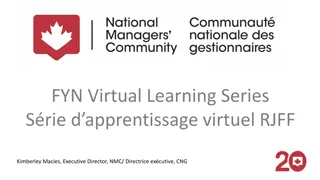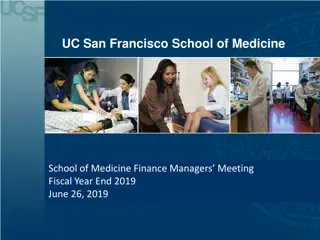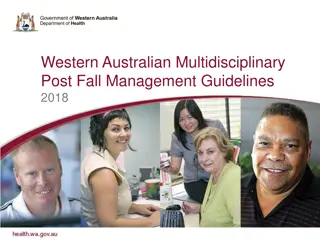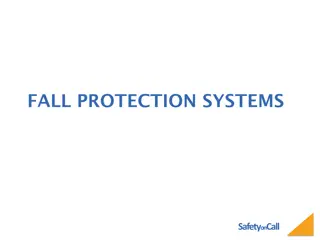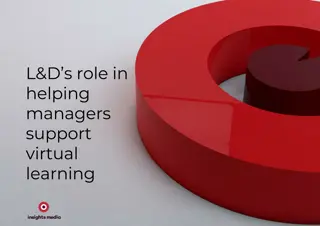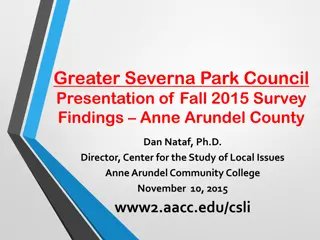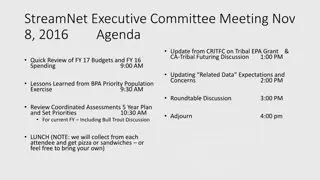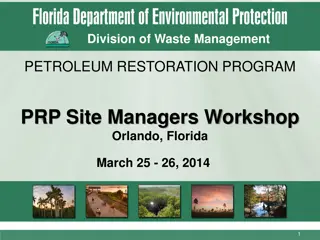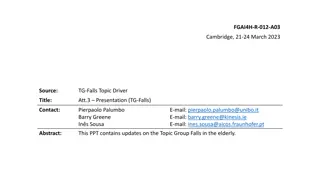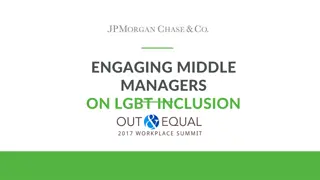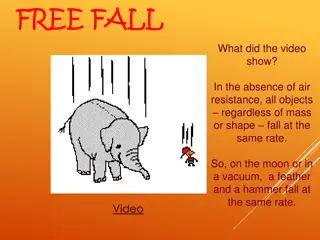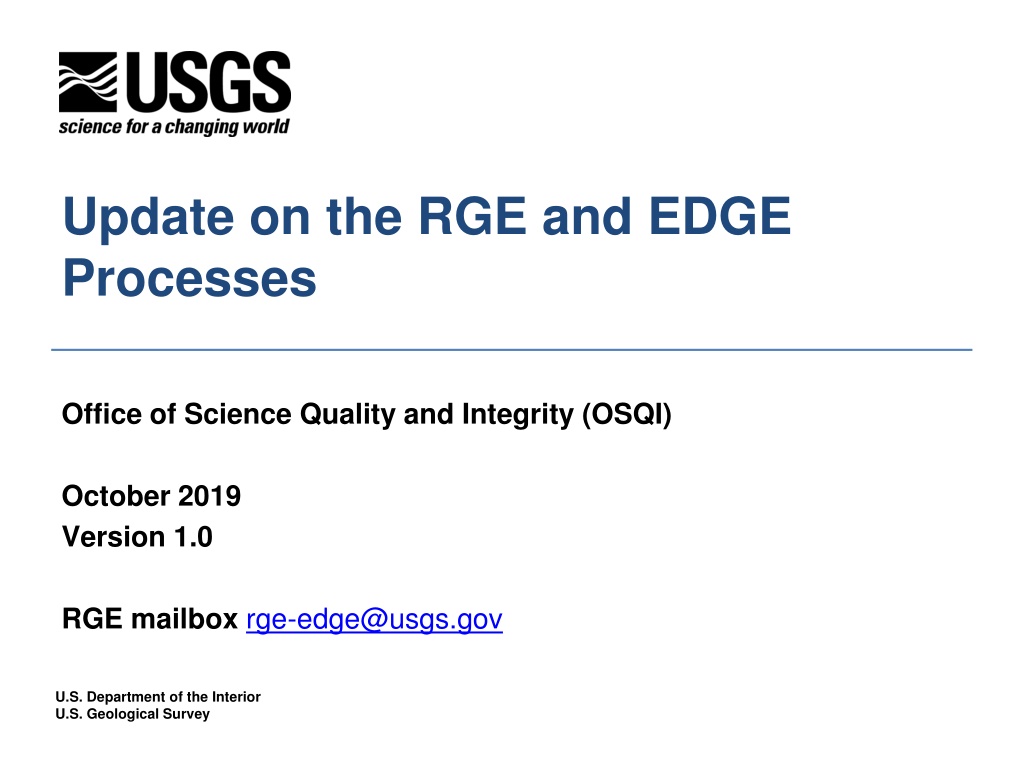
Understanding RGE and EDGE Processes at USGS
Explore the RGE and EDGE processes at the U.S. Geological Survey (USGS) administered by the Office of Science Quality and Integrity (OSQI). Learn about the Research Grade Evaluation (RGE) and Equipment Development Grade Evaluation (EDGE), their review teams, what's changing, and how these processes are crucial for maintaining the scientific reputation of the USGS.
Download Presentation

Please find below an Image/Link to download the presentation.
The content on the website is provided AS IS for your information and personal use only. It may not be sold, licensed, or shared on other websites without obtaining consent from the author. If you encounter any issues during the download, it is possible that the publisher has removed the file from their server.
You are allowed to download the files provided on this website for personal or commercial use, subject to the condition that they are used lawfully. All files are the property of their respective owners.
The content on the website is provided AS IS for your information and personal use only. It may not be sold, licensed, or shared on other websites without obtaining consent from the author.
E N D
Presentation Transcript
Update on the RGE and EDGE Processes Office of Science Quality and Integrity (OSQI) October 2019 Version 1.0 RGE mailbox rge-edge@usgs.gov U.S. Department of the Interior U.S. Geological Survey
Outline RGE and EDGE overview RGE / EDGE Review Team What is not changing What is changing Time for questions 2
What are RGE and EDGE? Research Grade Evaluation Equipment Development Grade Evaluation Periodic review of research or development positions Review of grade classification Professional science series (fish biologist, geologist, space scientist ) Permanent positions** Review of requests for conversion to RGE or EDGE **Center Directors may request to have term RGE or EDGE employees reviewed by a panel. 3
What are RGE and EDGE? RGE-EDGE Performance Review Research only OPM Guide Panel of Peers Grade Classification Periodically Total job Performance Plan Supervisor Performance awards Annual Different processes with different objectives and outcomes However, poor performance ratings may delay RGE EDGE reviews Contact HR with specific questions 4
What are RGE and EDGE? RGE is covered by Office of Personnel Management RGE Guide through GS15 USGS-specific guidance for Senior Scientist (ST) level EDGE is covered by Office of Personnel Management EDGE Guide through GS14 USGS-specific guidance for GS14+ Posted on RGE web site usgs.gov/rge-edge 5
RGE and EDGE at the USGS ~1100 RGE and 45 EDGE scientists Maintains scientific reputation and credibility of the USGS the Bureau s scientific reputation largely depends on its commitment to the highest standards in the RGE-EDGE process (USGS RGE Advisory Group Report, 2011) Throughout its history and ingrained in its culture, the USGS has placed a high value on scientific peer review. The RGE/EDGE process is guided by a peer review ethic and has been the standard for the classification of these positions in the USGS. (RGE Review Team Final Report, 2019) 6
RGE and EDGE at the USGS Administered by OSQI in collaboration with the Office of Human Resources Reviewed by panels of scientific peers who meet in person for 2 or 3 days and reach consensus Two review cycles each year Spring cycle - March 21 standing due date Fall cycle - September 21 standing due date Or the following Monday when these dates land on a weekend 7
RGE/EDGE Review Team - Charter Chartered May 2017 to: review research evaluations in other agencies, identify current flexibilities, gather feedback regarding current practices, assess current practices, recommend improvements to RGE processes, and recommend a long-term approach to obtain feedback on the health and vitality of USGS science workforce. 8
Review Team - Membership Suzette Kimball Chair Headquarters Offices Chris Johnson OSQI Eleanour Snow OSQI Regina Neal-Mujahid Office of Diversity and Equal Opportunity Tamara Lamb-Ghenee Human Resources Research Scientists Manuela Huso Jingle Ruppert Carol Finn Jayne Belnap (ST) ELT Sponsors Craig Robinson Aimee Devaris Geoff Plumlee Virginia Burkett Roseann Gonzales Regina Neal-Mujahid Center Management David Lytle Anke Mueller-Solger Randy Orndorff Ken Rice Chris Zimmerman Mission Areas Virginia Burkett Bill Guertal John Thompson 9
Review Team Findings Final (draft) report provided to OSQI, summer 2019 ~15 Key Findings ~29 Key Recommendations Full report to be published Special ELT briefing in August Resulting changes to process are being implemented over time 10
NOT changing - OPM Guides RGE and EDGE guides establish the scoring criteria These guides are governed by OPM Outside the authority of the USGS review team 11
Changes to Process spring 2018 fall 2018 spring 2019 spring 2019 spring 2019 spring 2019 fall 2019 fall 2019 Panel Chairs no longer used RGE Checklist no longer used Center Director contact now required Second-level panels no longer used Single ST finding required Balance outputs and impact Review frequency New Feedback format New Scientist Record format More to come 2020 2020+ 12
Panel Chairs no longer used As of spring 2018 Was an undue burden on scientists Led to imbalance in panel participation Now OSQI staff handle all coordination Panel Member Identification Panel Logistics Training Meeting Facilitation Feedback Completion We encourage panel participation! 13
RGE Checklist no longer used As of fall 2018 Green Text Formerly used to define Levels B and D Nothing similar used by other RGE agencies Seen by RGE Review Team as artificial barrier Now only use the OPM RGE Guide, with guidance on how to score Levels B and D 14
Center Director contact required As of spring 2019 Formerly direct supervisor was the only required contact for primary reviewers Center Directors expressed interest in having more direct input into process Now require reference checks with BOTH direct supervisor and Center Director If same person, no additional contacts required Please be available when contacted! 15
Second-level panels no longer used As of spring 2019 Formerly used as consistency review 2nd review performed for any promotions above GS-13, and all below-grade findings Nothing similar used by other RGE agencies Added significant time to process Second-level panel composition was not peers Now one panel review determines outcome regardless of grade 16
Single ST finding required As of spring 2019 Formerly two consecutive panel findings with an ST scores were required Added significant time to process Now a single ST level finding (56+ points) refers a scientist to the Senior Scientist Review Panel SSRP is expected to meet annually 17
Balancing outputs and impacts As of spring 2019 Factor 4: Former tendency to over-rely on numbers of publications and reputation of outlets Provided a limited perspective Panels now encouraged to consider all of the scoring criteria, not just publications Panels must work to balance impact with outputs Impact may be scientific and / or societal 18
Balancing outputs and impacts How and to what extent does the work advance scientific understanding? Geographic, Disciplinary, Methodological, Technological, Importance of lines of research How and to what extent does the work advance the USGS and DOI Mission? USGS/DOI priority information need, Informing policy, Geographic applicability How and to what extent does the work protect and advance the health, safety, economic vitality, or ecological integrity of the US and other parts of the world? Health benefits, Safety benefits, Economic benefits, Ecological benefits 19
Review frequency As of fall 2019 Formerly a standard 4-year review frequency Average time to promotion increased with grade Many other agencies use a sliding frequency New standards: Up to GS-13: 4 years GS-14: 6 years GS-15: 7 years Options remain for early and delayed reviews 20
New findings format As of fall 2019 Former panel feedback focused on what the panel observed in a review Did not explain what was NOT observed New Findings format How the factor score was determined Why the higher score was not awarded No longer a comments section Attempt to be more explicit, less subtle 21
New scientist record format Planned spring 2020 Current format can be redundant, hard to review Some sections not useful (e.g. technical training) Tested new format in fall 2018 Positive feedback Will allow scientists to write narrative directly to the four factors Narrative length limits will be enforced! Will retain much of the supporting information (presentations, bibliography, recognition, etc.). 22
New scientist record format Narrative sections will need to be substantiated by the supporting information Different templates for RGE and EDGE RSR and DSR New guidance for handling data releases New format and associated trainings will be available ~December for spring 2020 cycle 23
More coming (spring 2020) Changes to the RDSR cover sheet Improve clarity and intent Change from portal to email submission Simplify process Designated RGE submission email box Request for early and delayed reviews will need Center Director agreement Increase communication with management 24
Expectations for Panel Results Working to have results out quickly after each panel Specific timing depends strongly on the overall schedule of panels Results distributed to Center Directors for action Fall 2019: Will review about 85 scientists in about 12 panels Panels should run November January/February. 25
If CD Disagrees with results Disagree with remain-in-grade finding? Contact RGE staff Option for Early review Disagree with promotion finding? Contact servicing HR office Discuss change of assignment 26
Roster Checks Coming We are performing the annual update of our scientist database. It will include the new 6- and 7-year cycle information for GS14s and GS15s. Please help us keep our information is current. This ensures scientists receive the information they need about upcoming reviews. 27
Resources www.usgs.gov/rge-edge Will be updated as new formats and information are made available OPM s RGE Guide and EDGE Guide EDGE and ST checklists Training materials on RDSR development Current RDSR template and required coversheet RDSR submission guidance 28
Contacts RGE Coordinators Steve Hilburger shilburger@usgs.gov Cara Campbell ccampbell@usgs.gov (acting) Shared RGE mailbox rge-edge@usgs.gov Human Resources related to RGE Tamara Lamb-Ghenee tlamb-ghenee@usgs.gov 29



